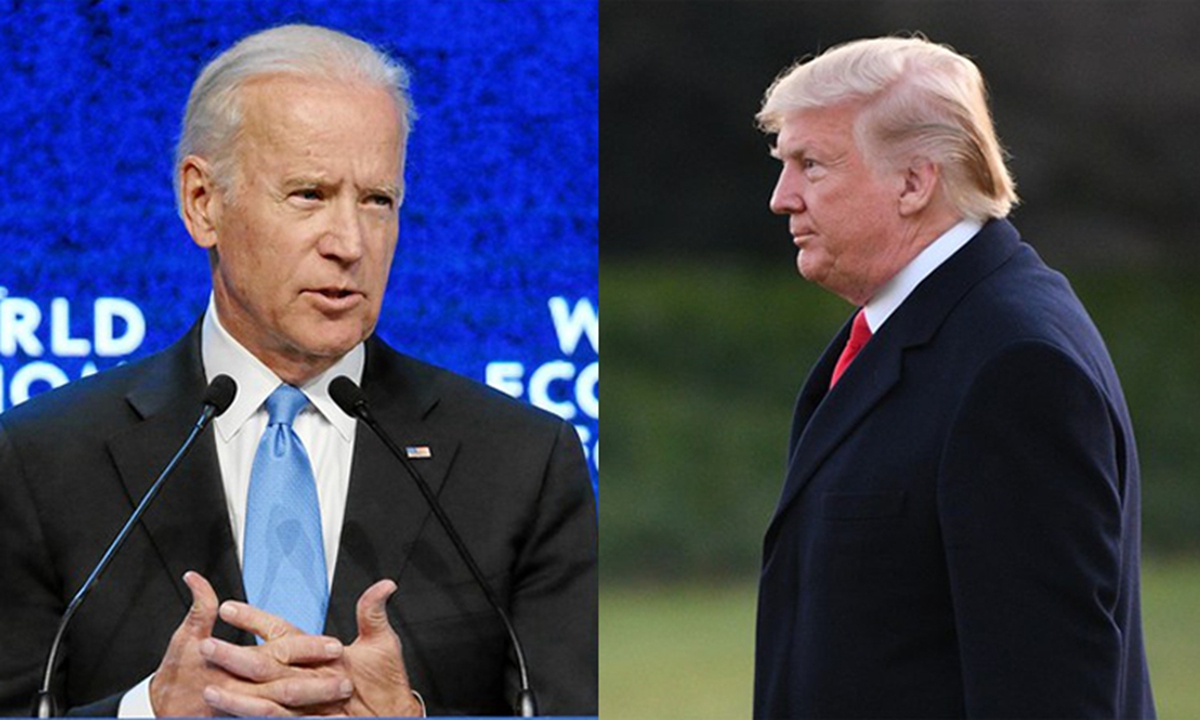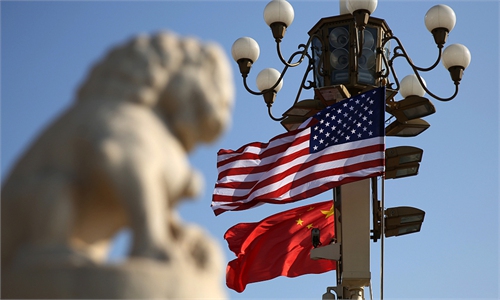
Photo: Xinhua
As president-elect, Joe Biden formally introduced a national security team on Tuesday, as talks of repudiating Trump's populist "America First" foreign policy are on the rise.
Why not? The four years of the scathing America First foreign policy have alienated America's allies around the world, leaving the US friendless on the world stage. The country no longer has an image of being benign and compassionate.
What's more, Donald Trump's zero-sum thinking, brinkmanship-style trade war, and bully-diplomacy approach to China-US relations nearly threw the entire world into a new Cold War. Many countries felt as if Washington was forcing them to take side - and no one wanted this.
It may be true that Trump's America First foreign policy and strongman approach may have earned the US some material benefits by making allies pay more or give it greater foreign market access. One might say the US is now feared more than ever. But this came at the complete expense of its soft power and the good will of the world over.
Against this backdrop, Biden has made his disgust with Trump's America First foreign policy well known. Just days before the election, he said, "Tragically, the one place Donald Trump has made 'America First' is his failed response to the coronavirus." He added, "On top of Trump embracing the world's autocrats and poking his finger in the eye of our democratic allies, that's another reason respect for American leadership is in free fall."
Biden vowed he will return to the Paris climate accord, rejoin the Iran nuclear deal, come back to WHO, and resume US leadership on the world stage. He also made it clear that his administration will resume goodwill and repair tattered transatlantic ties and relations with US allies as a top foreign policy priority.
His nominations suggest so: Antony Blinken, Jake Sullivan, and Linda Thomas-Greenfield are all veteran diplomatic or security officials with liberal internationalist bents. His national security team illustrates his seriousness in breaking with Trump's turbulent and nationalist foreign policy and trying to "return to normal."
The only question to ask is: Can Biden pull it off? So far, a Biden administration has to climb over at least three obstacles to jettison Trump's America First foreign policy.
The first obstacle is the changed domestic landscape that was fired up by Trump's unapologetic America First policy.
Biden admits that after four years of Trump presidency, the political landscape in the US has changed a lot, and it's on longer business as usual. Despite its obvious narrowness and shallowness, America First has considerable strong domestic support, especially with the working class people in the Rust Belt, the Middle West and the South.
The more than 74 million votes Trump harvested in the election is a reminder that any attempt to sweep away Trump's legacy may meet considerable opposition and resistance in the near term, going into the 2022 mid-term elections, and the next presidential cycle in 2024.
The second obstacle is the conservative Republicans, especially those in the Congress. In addition to Trump's more than 74 million votes, congressional Republicans also gained in the House and have a 50-48 advantage over the Democrats in the Senate at present. Everyone is waiting for the January 5 runoff election in Georgia to see who will capture the Senate.
Still, many of these Republicans moved in lockstep with Trump over the past four years. They will fight hard against any attempt to throw away Trump's foreign policy legacy. As an early indication over what may come from Republican opposition to Biden's foreign policy agenda, Senator Rubio, who sits on both the Senate Foreign Relations and Intelligence committees, has called Biden's national security team, "polite & orderly caretakers of America's decline."
The third obstacle will be to what extent Biden's international approach really strips away Trump's America First flavor and convinces domestic and international audiences that it's a viable alternative. During the campaign, Biden declared that he would pursue a foreign policy for the middle class. If implemented, he will defend the US middle class by making sure they have good-paying jobs and overall wellbeing. He also mentioned that the US will not seek endless foreign wars and the first priority is to get its own house in order by fighting the pandemic and restoring the economy.
Those insinuations are not at all internationalist per se. They carry a strong dose of nationalism. In this case, how can Biden convince allies abroad and liberal internationalists at home that his foreign policy will really jettison Trump's legacy? Or will this merely be a sugar coating for further heavy-handed American interventionism in other countries' domestic affairs?
The author is professor of Center for American Studies, Fudan University. opinion@globaltimes.com.cn


